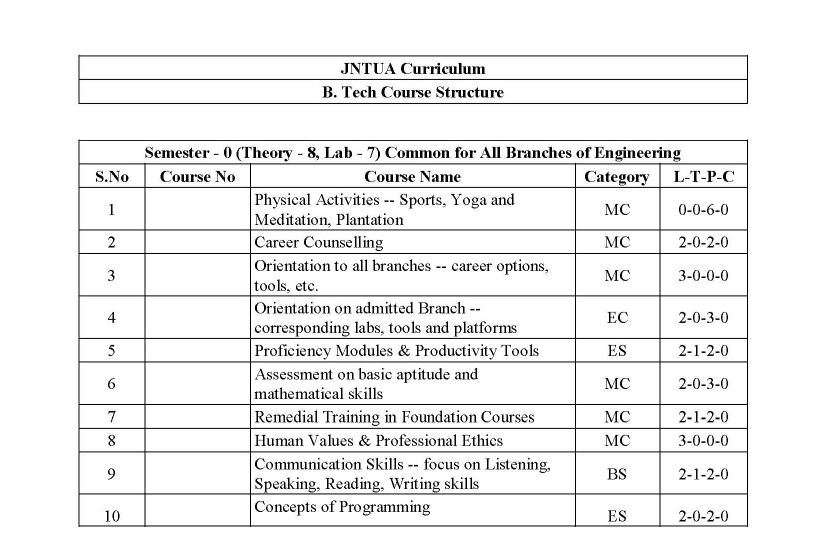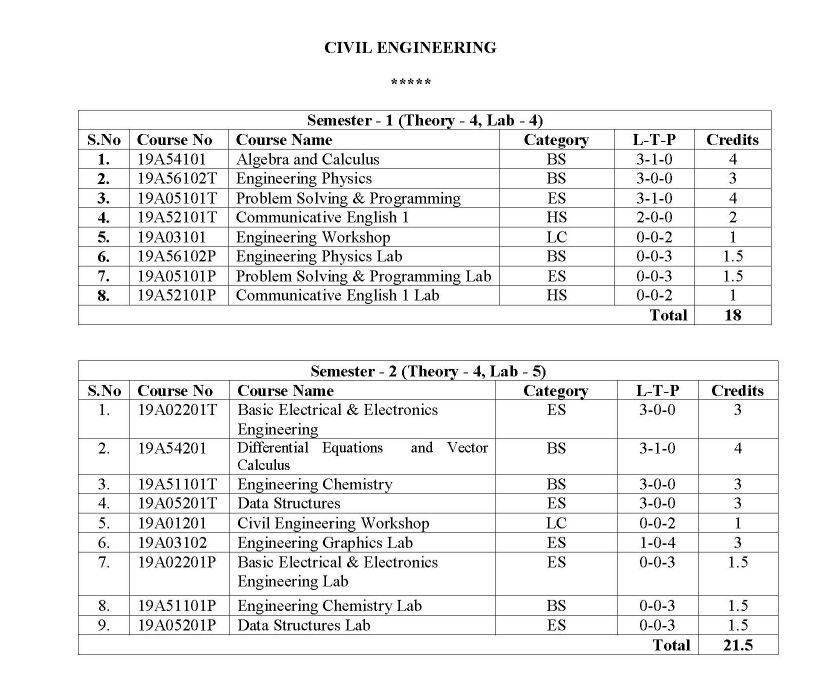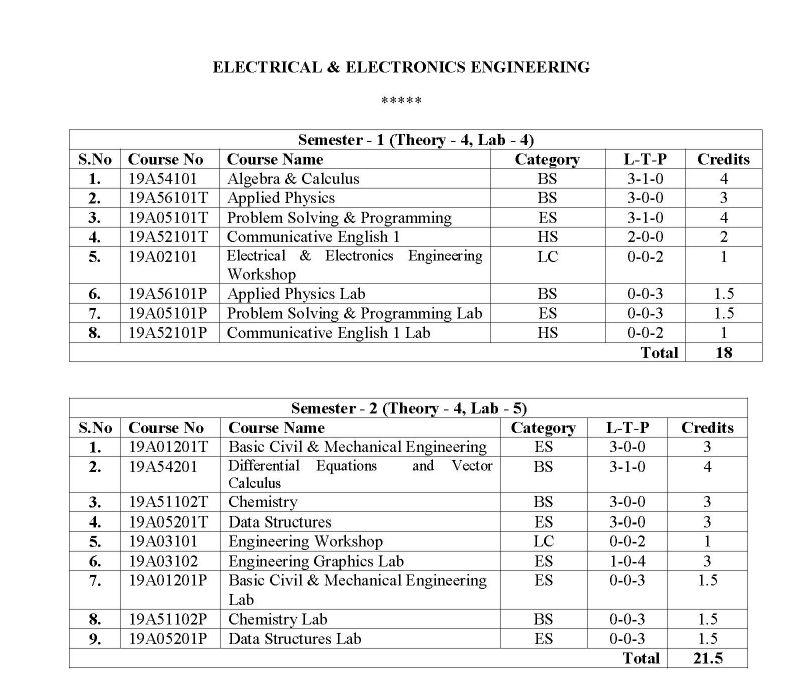|
#6
23rd September 2019, 08:11 AM
| |||
| |||
| Re: JNTU Anantapur First Year Syllabus
Jawaharlal Nehru Technological University, Anantapur (JNTU Anantapur) is a state university in Anantapur, Andhra Pradesh, India. B.Tech I Sem L T P C 3 1 0 4 (19A54101) Algebra & Calculus (Common to all branches of Engineering) Course Objectives: This course will illuminate the students in the concepts of calculus and linear algebra. To equip the students with standard concepts and tools at an intermediate to advanced level mathematics to develop the confidence and ability among the students to handle various real world problems and their applications. Bridge Course: Limits, continuity, Types of matrices Unit 1:Matrices 10 hrs Rank of a matrix by echelon form, solving system of homogeneous and non-homogeneous equations linear equations. Eigen values and Eigen vectors and their properties, Cayley-Hamilton theorem (without proof), finding inverse and power of a matrix by Cayley-Hamilton theorem, diagonalisation of a matrix, quadratic forms and nature of the quadratic forms, reduction of quadratic form to canonical forms by orthogonal transformation. Learning Outcomes: At the end of this unit, the student will be able to solving systems of linear equations, using technology to facilitate row reduction determine the rank, eigenvalues and eigenvectors, diagonal form and different factorizations of a matrix; (L3) identify special properties of a matrix, such as positive definite, etc., and use this information to facilitate the calculation of matrix characteristics; (L3) Unit 2: Mean Value Theorems 6 hrs Rolles Theorem, Lagranges mean value theorem, Cauchys mean value theorem, Taylors and Maclaurin theorems with remainders (without proof); Learning Outcomes: At the end of this unit, the student will be able to Translate the given function as series of Taylors and Maclaurins with remainders (L3) analyze the behaviour of functions by using mean value theorems (L3) Unit 3: Multivariable calculus 8 hrs Partial derivatives, total derivatives, chain rule, change of variables, Jacobians, maxima and minima of functions of two variables, method of Lagrange multipliers. Learning Outcomes: At the end of this unit, the student will be able to Find partial derivatives numerically and symbolically and use them to analyze and interpret the way a function varies. (L3) Acquire the Knowledge maxima and minima of functions of several variable (L1) Utilize Jacobian of a coordinate transformation to deal with the problems in change of variables (L3) Unit 4:Multiple Integrals 10hrs Double integrals, change of order of integration, double integration in polar coordinates, areas enclosed by plane curves. Evaluation of triple integrals, change of variables between Cartesian, cylindrical and spherical polar co-ordinates. Learning Outcomes: At the end of this unit, the student will be able to Evaluate double integrals of functions of several variables in two dimensions using Cartesian and polar coordinates (L5) Apply double integration techniques in evaluating areas bounded by region (L4) Evaluate multiple integrals in Cartesian, cylindrical and spherical geometries (L5) Unit 5:Special Functions 6 hrs Beta and Gamma functions and their properties, relation between beta and gamma functions, evaluation of definite integrals using beta and gamma functions. Jawaharlal Nehru Technological University, Anantapur (JNTU Anantapur) B.tech first Year Syllabus     |